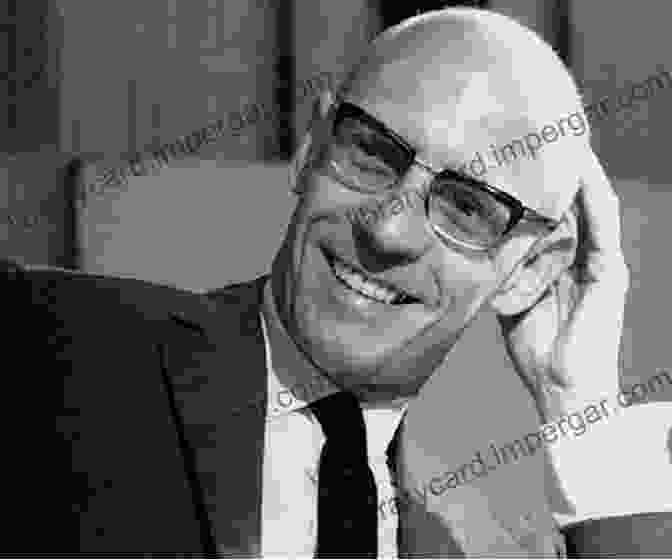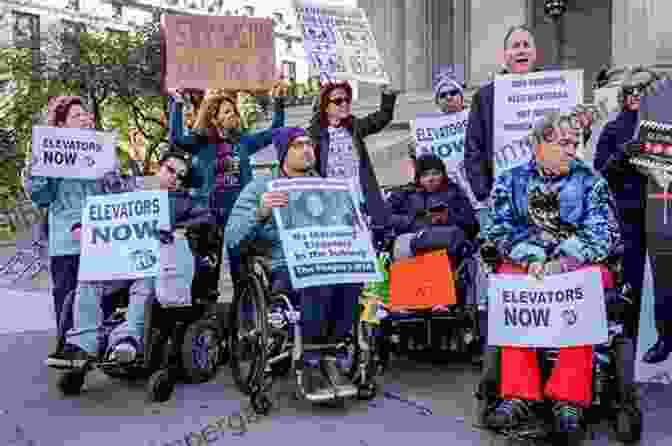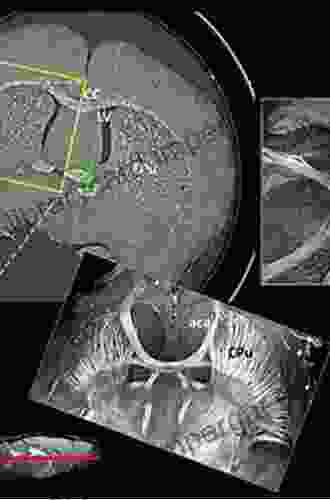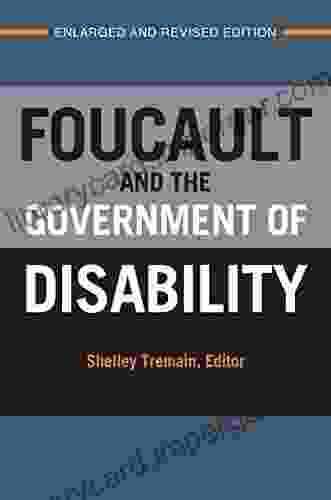Foucault and the Government of Disability Corporealities: Unraveling the Complexities of Power, Knowledge, and Disability

``
`
5 out of 5
| Language | : | English |
| File size | : | 1739 KB |
| Text-to-Speech | : | Enabled |
| Enhanced typesetting | : | Enabled |
| Word Wise | : | Enabled |
| Screen Reader | : | Supported |
| Print length | : | 442 pages |
`
``
`
`
`
`
``
``
` `
`
Michel Foucault's groundbreaking work on power and knowledge has had a profound impact on our understanding of the social construction of disability. In his seminal work, "The History of Sexuality," Foucault argues that power is not a static entity but rather a fluid and dynamic force that operates through a network of discourses and practices. This Foucauldian perspective offers a critical lens through which to examine the government of disability corporealities - the ways in which societies regulate, control, and shape the bodies and experiences of disabled people.
Foucault's Theory of Power: A Framework for Understanding Disability
Foucault's theory of power challenges the traditional view of power as a top-down, coercive force. Instead, he argues that power is diffuse and capillary, operating through a web of institutions, discourses, and everyday practices. This dispersed form of power, which Foucault terms "governmentality," shapes our actions, thoughts, and very bodies.
In the context of disability, Foucault's theory helps us to understand how power operates to construct and maintain categories of normality and deviance. Through medical discourse, for example, certain bodily variations are labeled as "disabilities," while others are normalized as "healthy." This process of medicalization serves to create a hierarchy of bodies, with disabled bodies occupying a devalued and marginalized position.
Knowledge and Disability: The Medical Gaze and the Construction of Disability
Foucault's work also sheds light on the role of knowledge in the construction of disability. He argues that knowledge is not neutral or objective but rather a product of power relations. The medical gaze, for example, has historically constructed disability as a pathological condition, a deviation from the norm. This medical knowledge has been used to justify exclusionary practices, such as institutionalization and segregation.
The Medicalization of Disability: Shaping Corporealities through Diagnosis and Treatment
The medicalization of disability has had a profound impact on the lives of disabled people. The process of diagnosis and treatment often involves the imposition of medical categories and interventions on disabled bodies. This can lead to a sense of alienation and a loss of control over one's own body.
Foucault's work encourages us to critically examine the medical model of disability and to consider alternative perspectives. Social and cultural models of disability, for example, focus on the social and environmental barriers that create disability rather than on individual deficits. These models emphasize the importance of inclusion, accessibility, and the recognition of disability as a form of diversity.
Normalization and Stigma: Disability and the Production of Otherness
Foucault's theory of power also helps us to understand the processes of normalization and stigma that are central to the government of disability corporealities. Normalization refers to the creation of a set of norms and expectations that define what is considered "normal" or "healthy." Disability is often constructed as a deviation from these norms, leading to stigma and social exclusion.
Stigma associated with disability can have a profound impact on the lives of disabled people. It can lead to discrimination in employment, education, and social participation. It can also contribute to feelings of shame, isolation, and low self-esteem.
The Body Politic: Disability and the Struggle for Inclusion
Foucault's work on the body politic provides a valuable framework for understanding the political struggles of disabled people. The body politic refers to the ways in which the body is used as a metaphor for the state and for society as a whole. Disabled bodies have often been excluded from the body politic, seen as unworthy of representation or participation.
The disability rights movement has challenged this exclusion by demanding the full inclusion of disabled people in society. This struggle has led to important gains in the areas of education, employment, and accessibility. However, the fight for disability justice is ongoing, and Foucault's work continues to inspire activists and scholars alike.
Inclusive Education: Disability and the Right to Learn
Inclusive education is a fundamental right for students with disabilities. It is about ensuring that all students have access to the same educational opportunities, regardless of their abilities or disabilities. Inclusive education benefits not only students with disabilities but all students, creating a more diverse and equitable learning environment.
Foucault's work on power and knowledge can help us to understand the barriers that have historically excluded students with disabilities from education. These barriers include discriminatory policies, negative attitudes, and a lack of support and accommodations.
By challenging these barriers, we can create more inclusive schools where all students feel welcome and valued. Inclusive education is not just about providing access to education but about creating a sense of belonging and empowerment for students with disabilities.
Disability Justice: A Call for Radical Transformation
Disability justice is a movement that seeks to radically transform the way we think about and experience disability. Disability justice activists challenge the medical model of disability and argue for a social model that recognizes disability as a form of diversity. They advocate for the full inclusion of disabled people in all aspects of society, from education to employment to healthcare.
Foucault's work on power and knowledge provides a valuable framework for understanding the challenges faced by the disability justice movement. Foucault's insights can help us to identify and challenge the ways in which power operates to exclude and marginalize disabled people.
By working together, we can create a more just and equitable world for all, regardless of ability or disability.
Michel Foucault's work on power, knowledge, and the body has had a profound impact on our understanding of disability. His theories provide a critical lens through which to examine the ways in which societies regulate, control, and shape the bodies and experiences of disabled people. By understanding the complex interplay between power, knowledge, and disability, we can work towards creating a more inclusive and just society for all.
` `
`
`
5 out of 5
| Language | : | English |
| File size | : | 1739 KB |
| Text-to-Speech | : | Enabled |
| Enhanced typesetting | : | Enabled |
| Word Wise | : | Enabled |
| Screen Reader | : | Supported |
| Print length | : | 442 pages |
Do you want to contribute by writing guest posts on this blog?
Please contact us and send us a resume of previous articles that you have written.
 Book
Book Novel
Novel Page
Page Chapter
Chapter Text
Text Story
Story Genre
Genre Reader
Reader Library
Library Paperback
Paperback E-book
E-book Magazine
Magazine Newspaper
Newspaper Paragraph
Paragraph Sentence
Sentence Bookmark
Bookmark Shelf
Shelf Glossary
Glossary Bibliography
Bibliography Foreword
Foreword Preface
Preface Synopsis
Synopsis Annotation
Annotation Footnote
Footnote Manuscript
Manuscript Scroll
Scroll Codex
Codex Tome
Tome Bestseller
Bestseller Classics
Classics Library card
Library card Narrative
Narrative Biography
Biography Autobiography
Autobiography Memoir
Memoir Reference
Reference Encyclopedia
Encyclopedia Allie Wilson
Allie Wilson Alice Crary
Alice Crary Alexis Krasilovsky
Alexis Krasilovsky Alisdair Aird
Alisdair Aird Scott Ritter
Scott Ritter Ginny Olson
Ginny Olson Ali Junaid
Ali Junaid Lucile Scott
Lucile Scott Allan R Coletta
Allan R Coletta Matthew Griffin
Matthew Griffin Stan Holden
Stan Holden Teresa Lopez Soto
Teresa Lopez Soto Christy Copeland
Christy Copeland Steven Shaviro
Steven Shaviro Edward Willett
Edward Willett Bill Whitfield
Bill Whitfield Alan W Brue
Alan W Brue Benjamin Schoendorff
Benjamin Schoendorff Alexander De Foe
Alexander De Foe Dameion Bland
Dameion Bland
Light bulbAdvertise smarter! Our strategic ad space ensures maximum exposure. Reserve your spot today!

 Theodore MitchellUnderlying Physics and Developments for Breast Imaging: A Comprehensive...
Theodore MitchellUnderlying Physics and Developments for Breast Imaging: A Comprehensive...
 Jan MitchellUnveiling Divine Wisdom and Transformational Insights: Volume 20 of the Saint...
Jan MitchellUnveiling Divine Wisdom and Transformational Insights: Volume 20 of the Saint... Fletcher MitchellFollow ·2.2k
Fletcher MitchellFollow ·2.2k Theo CoxFollow ·8.9k
Theo CoxFollow ·8.9k Albert CamusFollow ·2.5k
Albert CamusFollow ·2.5k Troy SimmonsFollow ·11.9k
Troy SimmonsFollow ·11.9k Houston PowellFollow ·9.8k
Houston PowellFollow ·9.8k Stephen FosterFollow ·7.7k
Stephen FosterFollow ·7.7k Christian CarterFollow ·3k
Christian CarterFollow ·3k Ed CooperFollow ·14.8k
Ed CooperFollow ·14.8k

 Ignacio Hayes
Ignacio HayesUnveiling the Secret Spitfires: Britain's Hidden Civilian...
: The Untold Story of Britain's...

 Scott Parker
Scott ParkerLiving With Schizophrenia: A Father and Son's Journey
Schizophrenia is a serious...

 Ted Simmons
Ted Simmons"From Sign Up to Pass Out": The Shocking and Immersive...
Step into the...

 John Keats
John KeatsThe Development of Biographies and Philosophical...
The Alluring...

 Dan Brown
Dan BrownCapture Your Dream Wedding with Digital Wedding...
Your wedding day is...
5 out of 5
| Language | : | English |
| File size | : | 1739 KB |
| Text-to-Speech | : | Enabled |
| Enhanced typesetting | : | Enabled |
| Word Wise | : | Enabled |
| Screen Reader | : | Supported |
| Print length | : | 442 pages |










